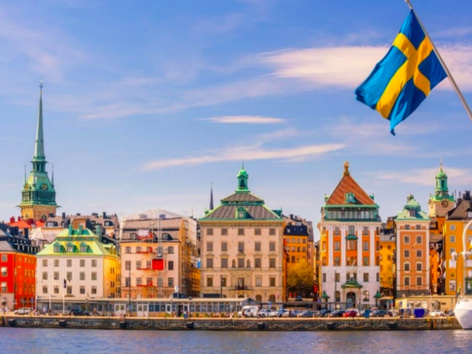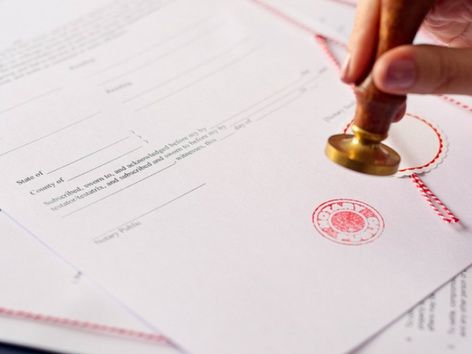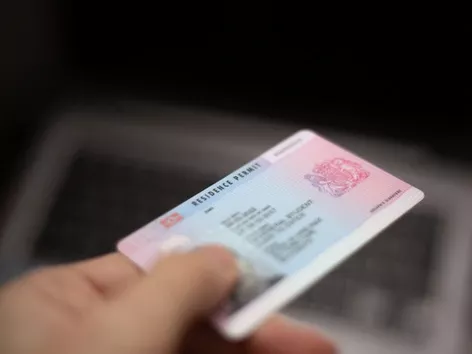Digital nomad visa to Spain for Ukrainians: everything you need to know to move

Digital Nomad visa to Spain opens up opportunities for long-term residence and work in the country. Find out how to obtain such a visa, as well as about the peculiarities of tax policy, income requirements, and the benefits of living in Spain
In today's world, remote work is becoming increasingly popular, and countries are adapting to new realities by offering special visas for digital nomads. Spain is one of these countries. And today it offers attractive conditions for those who want to combine work and travel.
The Digital Nomad Visa is designed for professionals who work remotely for international companies or as freelancers and want to live in Spain. This visa allows you to legally reside in the country for a long period of time while working remotely. It is especially attractive for IT specialists, marketers, designers, and other professionals who can perform their work regardless of geographical location.
Comparison of the Digital Nomad visa in Italy with visas from other EU countries
A digital nomad visa for Italy has many advantages compared to other European countries. Let's find out what the main difference is in this article.
Tax policy: significant savings for remote workers
One of the key advantages of Spain is its attractive tax system for digital nomads, as there is a special preferential rate. Holders of a digital nomad visa who earn up to 600,000 euros per year can count on a reduced rate of 24%. This makes Spain much more attractive, as in other countries, the tax system is often more complex and less flexible. Moreover, 24% is significantly lower than the usual tax rates for residents. For comparison:
– Portugal, for example, has a special program for foreigners called “Non-Habitual Resident” that provides a 10-year tax break, but the tax system in Portugal can be more complicated
– Estonia has introduced income tax for digital nomads only if they stay in the country for more than 183 days, while in Spain, a nomad can stay in the country for a shorter period and enjoy benefits.
Length of stay: possibility of long-term residence
The Spanish visa for digital nomads allows you to live in the country for up to one year, and if you wish, the visa can be extended for another two years and then for another five years. This flexibility is an advantage compared to other countries. For example, Estonia provides a visa for only one year without the right to extend, which forces nomads to look for other options after this period.
And in Croatia, a digital nomad visa is also issued for one year, but without the possibility of extension. At the same time, after the expiration of the stay, nomads must leave the country for 6 months before reapplying.
Income requirements: flexible conditions for different professionals
Spain sets the minimum income for digital nomads at approximately 2,000-3,000 euros per month. This is an average level compared to other countries. For example, Estonia and Greece require a monthly income of more than 3,500 euros, which can be a serious challenge for some freelancers.
Visit Ukraine on social media: Telegram | YouTube | Instagram | Facebook | Twitter | TikTok
Health insurance: access to quality healthcare
In Spain, digital nomads have access to the public healthcare system if they have a residence permit. Private health insurance is required at the application stage, but after receiving the permit, you can switch to public insurance. In comparison:
– Croatia requires only private health insurance for the entire period of stay.
– In Portugal, you also need to have private health insurance, although after a long stay you can join the national healthcare system.
Travel opportunities: freedom of movement in the Schengen area
As Spain is part of the Schengen area, digital natives can travel within Schengen without additional visas, which opens up opportunities to visit neighboring countries and explore Europe without additional documentation difficulties.
It should be noted that this is a common advantage for many EU countries, but Spain offers a more developed infrastructure for nomads (a large number of coworking spaces, stable internet, etc.), which makes traveling around the country even more convenient.
High quality of life and favorable climate
Spain's climate is one of the most comfortable in Europe. In addition, the country is known for its well-developed infrastructure and great cultural heritage. This is an ideal environment for those looking for a balance between work and leisure.
Spain is an attractive destination for digital nomads, offering not only favorable conditions for remote work, but also a high standard of living, access to the European market, and the opportunity to enjoy all the benefits of the Mediterranean climate.
If you are looking for an opportunity to work from anywhere in the world and want to spend some time in a country with a rich cultural heritage and excellent infrastructure, a digital nomad visa to Spain is something worth considering, and Visit Ukraine lawyers are always ready to help you with this.
The procedure for obtaining a digital nomad visa in Spain
1. Preparation of documents: the applicant must prepare a passport, documents confirming income, a contract with an employer or clients, health insurance and documents confirming residence in Spain (lease agreement, etc.).
2. Apply to the consulate: After collecting the documents, you need to apply to the Spanish consulate in your country or in another Schengen country.
3. Waiting for a decision: The application can take from several weeks to several months to be processed, depending on the situation.
Keep in mind that the process of obtaining a visa and conducting legal affairs in a foreign country is often complicated and requires special knowledge. Legal support will ensure compliance with all requirements and guarantee the safety of your business. Our specialists will help you with the paperwork, prepare for the interview and advise on all issues so that you can confidently implement your plan for living and working in Spain.
We remind you! The Digital Nomad (D8) visa in Portugal is a great opportunity for remote workers and freelancers to live and work in the country. Read what is special about this type of visa, how it differs from the D7 visa and how Ukrainians with temporary protection/residence permit can apply for a digital nomad visa in our previous article.
Want to know more? Read the latest news and useful materials about Ukraine and the world in the News section.
In order to organize a trip, ensure a safe move and successful employment in a new country, I advise you to contact a specialist. My colleagues, qualified specialists with legal education, will help you avoid unpleasant situations when traveling abroad.
Do you have additional questions? Contact the Visit Ukraine hotline (Telegram | WhatsApp).
Our recommendation for a safe and comfortable trip:
Visit Ukraine Insurance - insurance for a safe stay abroad without unnecessary expenses;
Green Card - compulsory car insurance for traveling abroad;
Visit Ukraine Tickets - book tickets for buses, trains, and airplanes to/from Ukraine and between cities around the world;
Private Lawyer service - professional legal support on visa and migration issues;
Visit Ukraine Merch - buy patriotic clothing and accessories with worldwide delivery.
© 2018-2024, Visit Ukraine. Use, copying or reprinting of materials on this site is permitted only with a link (hyperlink for online publications) to Visit Ukraine.
All rights reserved.
Recommended articles
1 min
Cost of living
Cost of living and prices in Sweden: apartment rent, food, transport
Before moving to a new country, it is worth researching the living conditions and the cost of basic needs. Find out more about the cost of living in Sweden, where to look for rental accommodation and how much food costs
08 Oct. 2024
More details2 min
Documents
Apostillisation of documents for Ukrainians in 2025: what is an apostille and why is it needed
Apostille is an international standardized form for filling out information about the legality of a document. In particular, the "Apostille" stamp is applied to originals and copies of documents. Learn more about the current changes in 2025 in apostillation and who needs it
09 Feb. 2025
More details2 min
Car insurance
Compulsory car insurance in Italy: what do drivers need to know?
Ukrainians who have entered Italy by car should know all about the rules that apply to drivers. Find out more about compulsory car insurance in Italy and whether Ukrainians need to take out a local policy
06 Aug. 2024
More details2 min
Documents
Temporary protection for Ukrainians in Italy (il permesso di soggiorno per protezione speciale) can be converted into another type of residence permit, such as permesso di soggiorno per lavoro. Find out how to apply for a work permit and what documents are required for this
12 Sep. 2024
More details

